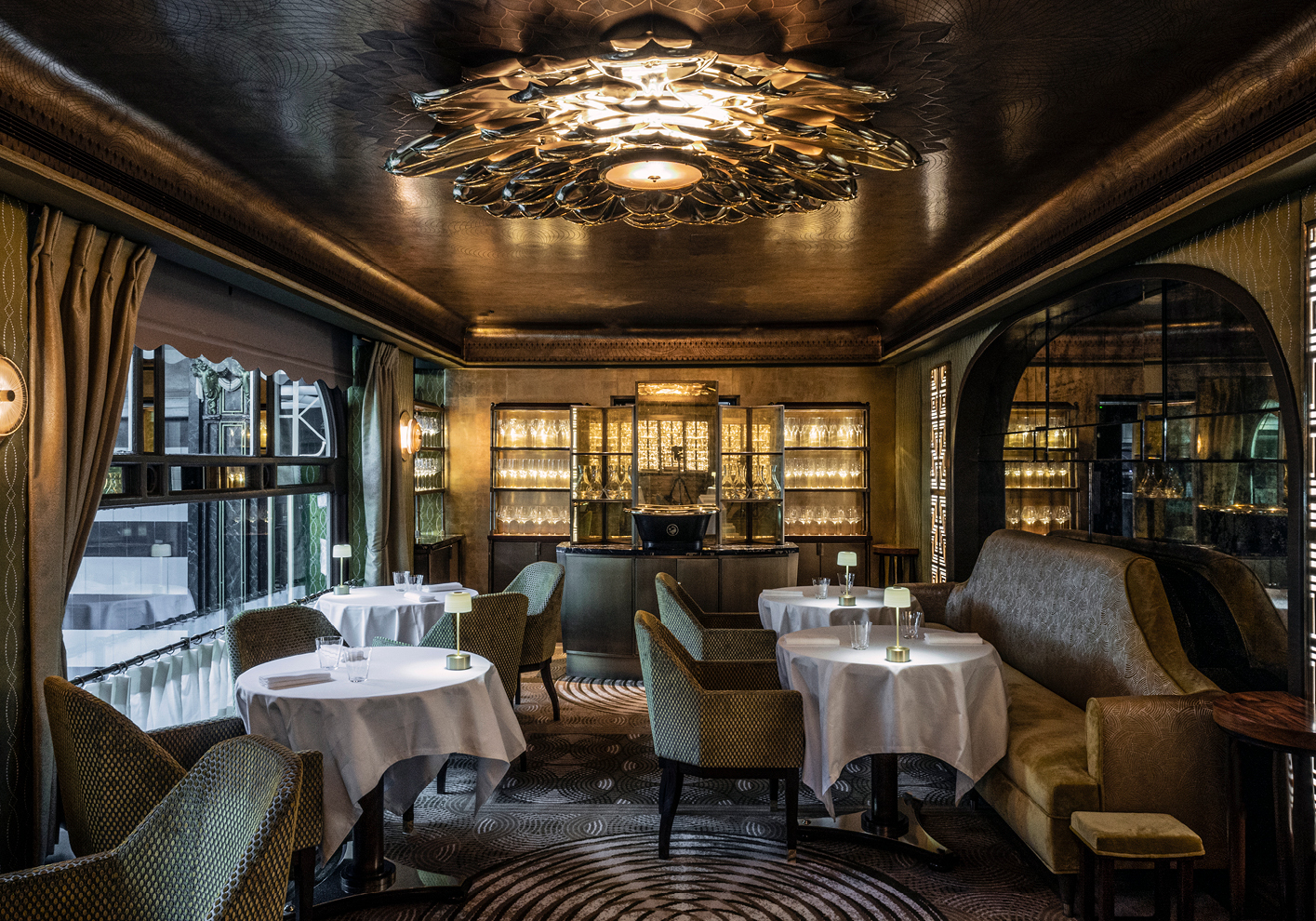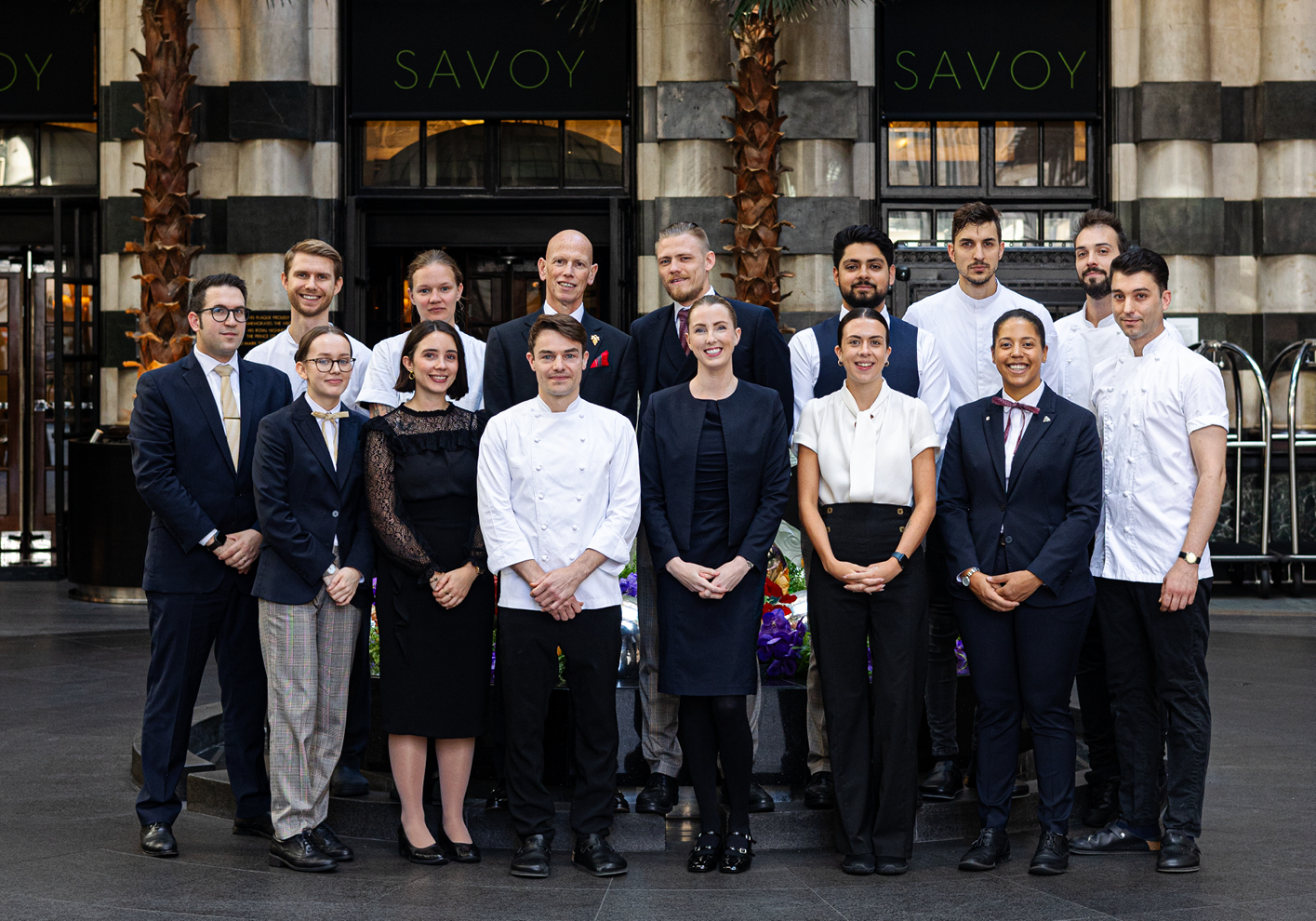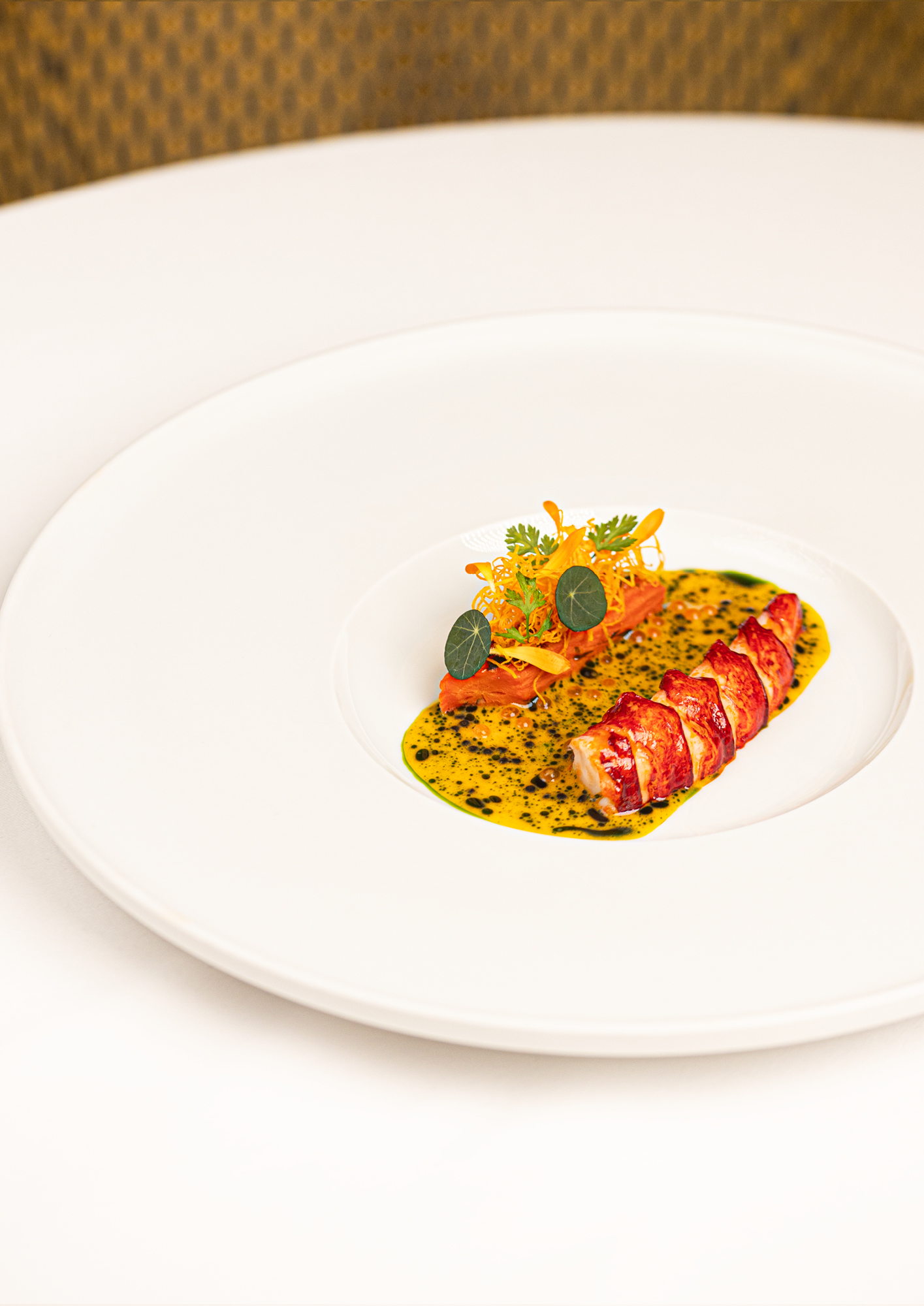WORDS
Scarlet Bailey-Tait
What can diners expect at Restaurant 1890?
A journey of discovering classic French cuisine inspired by the chef Georges Auguste Escoffier. We bring his sauces, techniques and dishes up to date for a dining experience worthy of today’s clientele.
Why have you taken inspiration from him specifically?
The restaurant is called 1890 because that’s the year Escoffier joined The Savoy hotel. He was the grandfather of classic French cuisine. The restaurant is in honour of him, since his [way] was the basis of so much cooking today, both French and modern European food.

How did you get into this industry?
At university I was training to be a PE teacher, but I started to love cooking, making my own fresh pasta and bread almost on a daily basis. Once I graduated, I was fortunate to be given an opportunity in a small, Michelin-starred restaurant in Kent called Apicius. My parents took me there to congratulate me for graduating. It was a husband-and-wife team [Tim and Faith], and after I told them I wanted to be a chef, Faith invited me to spend a few days seeing what a proper kitchen is like. The second day, they offered me a job. Later, I moved to Restaurant Gordon Ramsay, working my way up the ranks, and then to Pétrus, before joining Restaurant 1890 as part of the opening team.
What’s your favourite thing about being a professional chef?
I think of cooking as a craft that you refine over time, and it’s that constant refinement that I enjoy. The other thing is the team’s camaraderie. You spend more time with one another than with your family and friends, and you make so many sacrifices to work in restaurants of this standard. I love that team effort where you’re all suffering together, but also enjoying the pleasures together.

Is there an item on the menu you’re most passionate about?
In a word: no. The beautiful thing about Restaurant 1890 is that we’re a carte blanche restaurant, meaning I can serve the best seasonal produce. The most exciting thing for a chef is that there’s always the next season’s produce to look forward to. No dish stays on the menu here longer than two or three months. The whole menu is always evolving. Doing the same dishes repeatedly wouldn’t be good for the team’s excitement or development.
Which ingredient couldn’t you live without and why?
Salt. Proper understanding and use of it makes the difference between good food and bad. Everything, from the canapés to the desserts, has a certain amount of salt. It makes other things taste better by enhancing their flavours rather than imparting its own.
How do you work with the sommeliers to pair each dish with a particular wine?
We offer five different wine pairings, including a non-alcoholic option, though we can completely customise a pairing to your preferences, too. We work extremely closely with the sommeliers to ensure the wine does pair, and involve them with the development of the dishes at the earliest stages. The food should make you want to go to the glass of wine and vice versa. In recent years, chefs tend to be the dominant feature of many restaurants, which I don’t understand. Restaurants should be about guests, not about chefs, and for us to make the guest’s experience the best it can possibly be, we need to work closely not only with the sommeliers but with front of house, too.

Do you have any doubts about your career and how do you overcome them?
Every day, is the answer! I’ve always thought that pressure and responsibility is a pleasure that is better to have than to have taken away from you or not to have in the first place. So, it’s about understanding that and gleaning pleasure from the stresses of trying to improve and grow.
At the beginning of your career, did you envision one day working for Gordon Ramsay?
When I was at university, one of my housemates dated a chef who worked for Marco Pierre White, and once he knew I was interested in food, he brought me 3 Star Chef by Gordon Ramsay, which I thought was the most beautiful cookbook I’d ever seen. That book didn’t just make me want to be a chef but made me want to work in Ramsay’s restaurant.
Have you always specialised in French cuisine?
Yes – although we take inspiration these days from a lot more than that: British ingredients, modern European cooking, a lot of Japanese and Scandinavian influences. There’s a lot of fermentation, salting, curing and using Japanese ingredients for umami. They’re an amazing way to keep full flavour but reduce the fat content of classic French cooking. Reducing the creams, the butters, the heaviness of classic French sauces to lighten up and freshen the menu, so guests can eat eight or nine courses. My biggest nightmare would be for guests to roll out of here feeling sick.
Who is your role model and how have they influenced your work?
I’ve been fortunate to work with a lot of great chefs, among them Tim Johnson, Clare Smyth and Matt Abé. They’re all exceptional examples of leadership and cooking. Over the last decade, it’s been about taking the best bits from them all while spending so much time getting to stand chopping board to chopping board with them.
Discover the cuisine curated by James Sharp and his team at Restaurant 1890; Savoy Hotel, Strand, London WC2R 0EU





